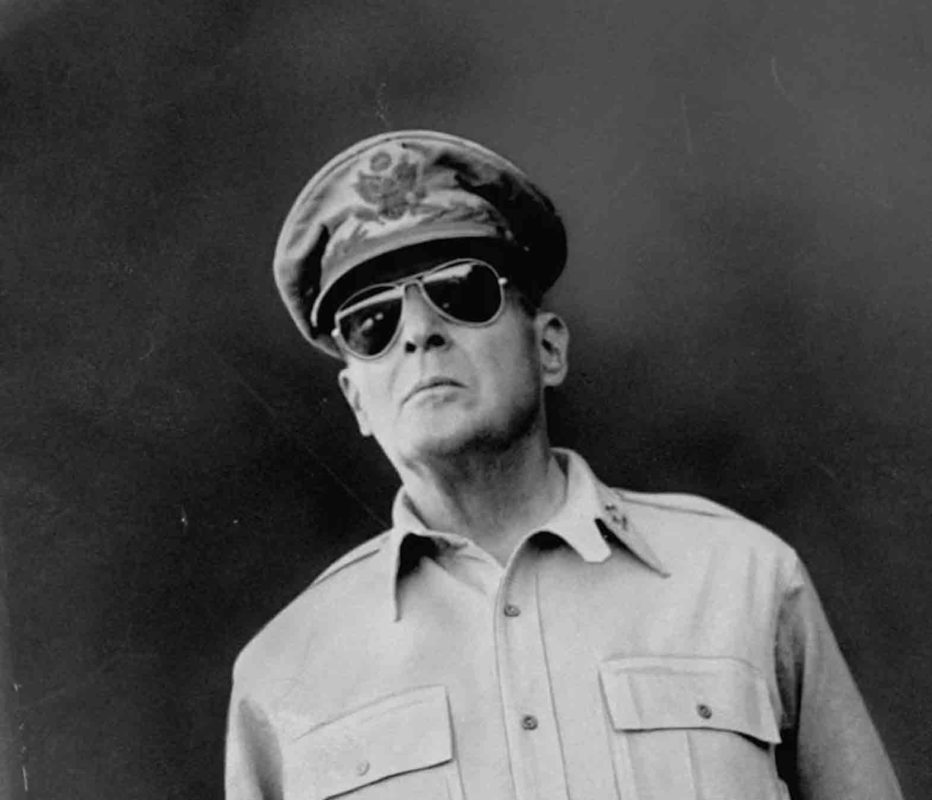
Ever confident, Gen. Douglas MacArthur declared that were the Japanese to attack, it would be the spring of 1942 at the earliest.
NEW YORK—This past December 7th marked the 81st anniversary of the bombing of Pearl Harbor by Japanese warplanes, igniting a war with the United States. That day was labeled “a date which will live in Infamy” by President Franklin Roosevelt in his speech to a joint session of Congress on December 8, 1941. By the time Roosevelt addressed Congress, the Japanese had already launched their assault on the Commonwealth of the Philippines, still a colony of the United States.
If the day before was a day of infamy, the next day was undoubtedly one of ineptitude, not on the part of the invading Japanese, who had planned for this war in the Pacific early on, but of General Douglas MacArthur, who had in 1935 been appointed the foremost US military adviser to Manuel Quezon’s government. MacArthur had asked, and been given, the rather grandiose title of Field Marshal, along with five stars, the first US general to be so ranked. In accepting the post, he resigned as Roosevelt’s chief of staff.
Dugout Doug, as he was later called acerbically by his troops, had been stationed in the islands before, as Commander of the Military District of Manila from 1922 to 1924, then again as department commander from1928 to 1930—assignments that resulted in close friendships with Quezon and others in government, and perhaps just as importantly, with the elites of Manila. This time around, he and his wife were housed in the airconditioned penthouse suite at the Manila Hotel, with chauffeured cars and a staff at his beck and call. To justify such luxurious arrangements, MacArthur was made nominal manager of the hotel.
At the time of his appointment, there were only 10,000 soldiers in the Commonwealth army. MacArthur was charged with building that up to 300,000 troops. In a typical act of braggadocio, he declared he would have 400,000 by 1946. In the meantime, relations between Japan and the US were deteriorating, and the prospect of war increased even as talks between the two nations continued in 1941. The talks however were broken off in late November. Ever confident, MacArthur declared that were the Japanese to attack, it would be the spring of 1942 at the earliest.
Tragically, he was off by a season.
At 3 a.m. of December 8, MacArthur was appraised of the Pearl Harbor debacle. Nine hours later, Japanese aircraft attacked Clark Air Base and the adjacent fighter base, destroying or disabling 18 of the 35 B-17s, caught on the ground refueling. More than 80 other aircraft were rendered useless, as were the two bases. MacArthur’s air defense force was all but shut down in a few days.
And yet the field marshal had those nine hours to take steps necessary to blunt the air assault by, for example, ordering the fighter planes into the air to meet the enemy aircraft, and the rest to be hidden, and not lie exposed and defenseless in the tropic sunlight. Nor was the troop strength up to par: it stood at 31,095, including 11,988 Philippine Scouts and 16,643 US soldiers. It was painfully obvious that the field marshal had failed in forming and preparing the United States Armed Forces in the Far East (USAFFE) to take on the invading Imperial Japanese Army, as he had confidently declared he would.
Even had he done so, the Japanese would likely still have triumphed and taken over the archipelago, in pursuit of their policy—creating the Greater East Asia Co-Prosperity Sphere, with its catchy slogan, “Asia for Asians.” But just as likely it would have come at a higher price and taken much longer, upsetting the Japanese timetable. Conceivably a horrific event such as the Bataan Death March may not have occurred, when of the 85,000 to 90,000 surrenderees, 25,000 died before completing the march, and of those interned, approximately 45,000 perished due to illness and/or starvation. In total, the Japanese occupation of the archipelago cost more than half a million Filipino lives, and about 23,000 American casualties.
As it was, virtually unopposed, Japanese landed troops in northern and southern Luzon as well as in Mindanao so that by late December a triumphant Japanese Imperial Army marched into Manila—by then declared an Open City by MacArthur, to forestall any bloodshed.
What might have prevented the general, who had up to that point a credible record of wartime bravery and accomplishments (as well as a few blackmarks), from burying his head in the sand, when it came to putting the Commonwealth of the Philippines on a war footing?
Could the sense of urgency have been diminished, buried, by a pampered lifestyle a world away from the officer quarters on an army base? By then, MacArthur was not only friends with Manila’s elite, he was one of Manila’s elite. In all respects he was the silk-clad pasha of a quiescent kingdom.
There likely was also a failure of actionable intelligence. By then, the Japanese community in the islands had grown considerably. Japanese businessmen controlled the hemp trade in Mindanao, making them the economic mainstay of the island—aided by pro-Japanese lobbyists in the Quezon government. And the Japanese established at least four mines in the country, with 80 percent of the iron ore produced shipped to Japan, further fueling suspicion of war preparation. Their community most certainly harbored fifth columnists providing Tokyo with up-to-date information on the Philippines’ defense preparations, or lack thereof. It was no secret that war with Japan seemed inevitable, and yet Dugout Doug’s intelligence apparatus was caught flatfooted.
Well-tailored suits, fancy silverware, lavish dinners, an elegant suite of spacious rooms overlooking a bay with its splendid sunsets, and, it was rumored, profitable investments in local enterprises, it seems, lulled an experienced warrior’s instincts to sleep. A perfect recipe for an invader to exploit, as was tragically done.
Copyright L.H. Francia 2022

